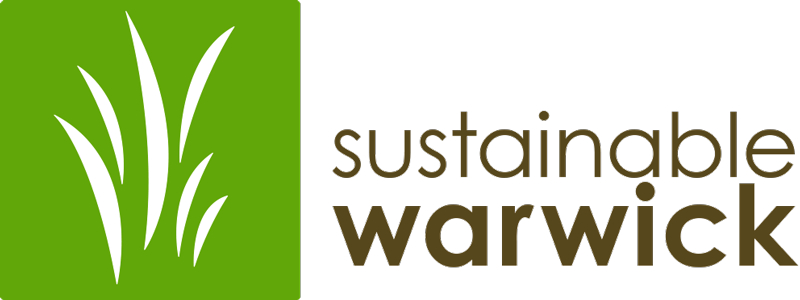Greener Schools Meeting
Meeting with Timothy Holmes
Warwick Valley Central School District
by Roger Moss
October 22, 2014
This interview was conducted to gather information about the efforts the school district has made to identify and reduce waste and wasteful practices in their school buildings. Timothy Holmes is the Assistant Superintendent for Business and helped coordinate these efforts to make the District greener.
In the 5 years since Mr. Holmes has been at the Warwick Valley Central School District, many improvements in sustainability and waste reduction have been made. One of the earliest successes was in the area of recycling – where there was very little being done, Mr. Holmes has put in place recycling of paper, plastic and metal. As you might expect, there’s an enormous amount of paper used in a school district, and now a great deal of the paper is put in recycle containers keeping it out of landfills. Plastic bottles used both for the cafeteria foodstuffs and for students’ personal beverages are recycled. Foam trays, which had been in use 5 years ago, have long since been replaced, by-and-large, by re-useable trays that go through the dishwasher. Through these efforts, the school district has reduced the number of garbage pick-ups from 5 a week, to 3 a week, with considerable cost savings to the district.
Through an Energy Performance Contract, WVCSD has installed a co-generator at the high school. The co-generator runs on natural gas and creates two energy sources – heating for the pool and electricity. The co-generation unit maximizes a valuable natural resource that provides a cost savings to the District and is an environmentally favorable conversion.
The grant also made possible outdoor LED lights, motion detectors in classrooms, replacement of all new ballasts throughout the District that use less electricity and insulating all buildings. New exterior doors have been installed throughout the District that provide for less energy waste.
At Sanfordville School, there were two tanks that were operating to supply of hot water for the kitchen and classrooms. These two tanks were converted into a single tank. This saved money and energy because you only have to heat one tank instead of two.
One of the projects in the Energy Performance Contract that the district sought funding for was a wind turbine. The turbine would have provided a substantial amount of electricity to the school but was denied by the State of New York. The reason it was denied was because the State would have had to fund 63% of the project.
The high school has a rain garden, which takes runoff from the High School parking lot and feeds it to the garden plants, thus filtering the water so pollutants don’t end up in Waywayanda creek.
To sum up, many improvements have been made and there are others, which might be undertaken, if the December 9th Capital Projects vote is favorable. In the project the District will purchase some new high efficiency boilers. Older boilers are less energy efficient and are past there useful life.
This is not to say that there aren’t challenges to accomplishing more energy efficiency. Although plastic recycling is available, students are only complying with the separation of plastic part of the time, resulting in only partial recycling. An enormous number of pages are printed on the district’s copiers – 12 million a year- which could be addressed by District employees being more thoughtful about how many copies really need to be generated. Food waste could be composted, given a cost effective and easy to follow set of instructions to do so. Although it would require some serious commitment, conserving heat by dialing back the heat settings by 2 degrees would make a very dramatic impact on heating costs. The department of energy estimates that a cost savings of about 1% results for each degree of temperature reduction.
Sustainable Warwick applauds the great accomplishments made thus far by the school district, and stands ready to assist in the evaluation of other energy saving projects, recycling, composting, and waste reduction the school district might consider. We have subject matter experts and a finger on the pulse of the Warwick community. Together, we can take the next steps toward greener schools.
